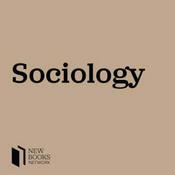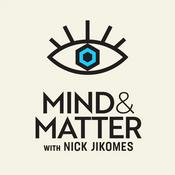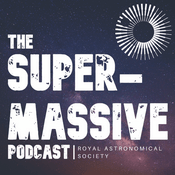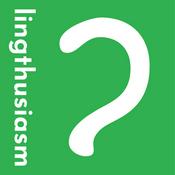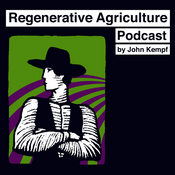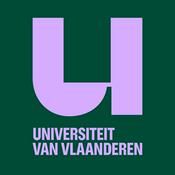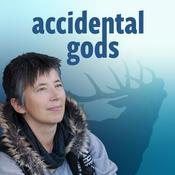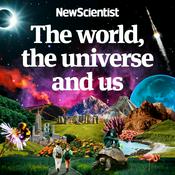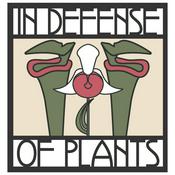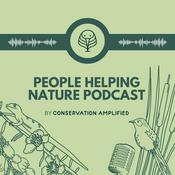1191 episodes
Jessica Martin, "Feminisms and Domesticity in Times of Crisis: The Rise of the Austerity Celebrity" (Bloomsbury, 2025)
21/2/2026 | 36 mins.Is the home still a site for feminist resistance? In Feminisms and Domesticity in Times of Crisis: The Rise of the Austerity Celebrity Jessica Martin, a Lecturer in Sociology and Social Policy at the University of Leeds, examines the rise of postfeminist celebrities in the era of covid and the cost-of-living crisis. Drawing on 4 case studies, the book demonstrates how much of the seemingly feminist celebrity activism of recent years has reinforced and justified social inequalities. The book explains and contextualises many current media issues, from the ‘trad wife’ and nostalgic gender politics, to the complicated politics of mumsnet, blogging and business coaches. Offering a nuanced account of the possibilities for alternatives, whilst cautioning that even explicitly anti-poverty feminist campaigning is constrained by a reactionary media landscape, the book is essential reading across the humanities and social sciences, as well as for anyone interested in understanding contemporary life.
Learn more about your ad choices. Visit megaphone.fm/adchoices
Support our show by becoming a premium member! https://newbooksnetwork.supportingcast.fm/sociology- How have jobs changed in the last 150 years? In The Division of Rationalized Labor (Harvard UP, 2025) Michelle Jackson, an Associate Professor in the Department of Sociology at Stanford University examines the original theories about the division of labour and explains why many predictions about the future of work did not emerge. Drawing on detailed case studies of medicine, law, education and manufacturing the book charts the intertwined rise of the sciences, the expansion of occupational responsibilities, and the increasing complexity of work. Theorizing the paradox of specialization, alongside detailed empirical analysis, the book is essential reading across the social sciences and for anyone interested in understanding work and occupations today.
Learn more about your ad choices. Visit megaphone.fm/adchoices
Support our show by becoming a premium member! https://newbooksnetwork.supportingcast.fm/sociology - In an age of growing wealth disparities, politicians on both sides of the aisle are sounding the alarm about the fading American Dream. Yet despite all evidence to the contrary, many still view the United States as the land of opportunity. The American Mirage addresses this puzzle by exposing the stark reality of today’s media landscape, revealing how popular entertainment media shapes politics and public opinion in an increasingly news-avoiding nation. Drawing on an eclectic array of original data, Dr. Eunji Kim demonstrates how, amid a dazzling array of media choices, many Americans simply are not consuming the news.
Instead, millions flock to entertainment programs that showcase real-life success stories, such as American Idol, Shark Tank, and MasterChef. Dr. Kim examines how shows like these leave viewers confoundingly optimistic about the prospects of upward mobility, promoting a false narrative of rugged individualism and meritocracy that contradicts what is being reported in the news. By taking seriously what people casually watch every day, The American Mirage shows how rags-to-riches programs perpetuate the myth of the American Dream, glorifying the economic winners, fostering tolerance for income inequality, and dampening support for redistributive policies that could improve people’s lives.
Our guest is: Dr. Eunji Kim, who is an Assistant Professor of Political Science at Columbia University. As a political communication scholar, she primarily studies the impact of media content on mass attitudes and political behavior. She is the author of The American Mirage: How Reality TV Upholds the Myth of Meritocracy. Her research explores a range of topics, and has been published in many leading journals including the American Political Science Review, American Journal of Political Science, Journal of Politics, and Proceedings of the National Academy of Sciences.
Our host is: Dr. Christina Gessler, who is a writing coach and editor for academics. She is the creator and producer of the Academic Life podcast, and writes the show’s newsletter at ChristinaGessler.Substack.com.
Playlist for listeners:
Understanding Disinformation
100 Years of Radio in South Africa
You Have More Influence Than You Think
Black Girls and How We Fail Them
Live From The Underground
Welcome to Academic Life, the podcast for your academic journey—and beyond! Please join us again to learn from more experts inside and outside the academy, and around the world. Missed any of the 300+ Academic Life episodes? Find them here. And thank you for listening!
Learn more about your ad choices. Visit megaphone.fm/adchoices
Support our show by becoming a premium member! https://newbooksnetwork.supportingcast.fm/sociology Agustín Santella and Adrián Piva, "Marxism, Social Movements and Collective Action" (Palgrave Macmillan, 2023)
16/2/2026 | 34 mins.Marxists have an obvious interest in understanding social movements. Less obvious, even with the voluminous theoretical archives at hand, is how to pull their various forms together into a cohesive theory of collective action. While one can see images on the news of strikes, riots, protests, coups, and uprisings, and draw occasional connections between them, turning this vast array of phenomena into a cohesive theory that can be built upon remains a challenge, but it's one my guests today, Augustin Santella and Adrian Piva have risen to. Assembling a number of essays from scholars from all over the world, their book, Marxism, Social Movements and Collective Action (Palgrave Macmillan, 2023) tries to understand the various forms collective struggle can take, all the while chasing the underlying logic that might unite them. While the book will not be the final word on the topic, its essays will prove rich resources for those looking for both empirical examples and philosophical speculations on the nature of collective struggle.
Augustin Santella and Adrian Piva are both professors at the University of Buenos Aires, Argentina.
Learn more about your ad choices. Visit megaphone.fm/adchoices
Support our show by becoming a premium member! https://newbooksnetwork.supportingcast.fm/sociologyAlexis Lerner, "Post-Soviet Graffiti: Free Speech in Authoritarian States" (U Toronto Press, 2025)
16/2/2026 | 46 mins.Post-Soviet Graffiti: Free Speech in Authoritarian States (University of Toronto Press, 2025) is an empirically grounded ethnographic study of how graffiti and street art can be used as a political tool to circumvent censorship, express grievances, and control public discourse, particularly in authoritarian states.
For more than a decade, Dr. Alexis M. Lerner combed the alleyways, underpasses, and public squares of cities once under communist rule, from Berlin in the west to Vladivostok in the east, recording thousands of cases of critical and satirical political street art and cataloging these artworks linguistically and thematically across space and time. Complemented by first-hand interviews with leading artists, activists, and politicians from across the region, Post-Soviet Graffiti provides theoretical reflection on public space as a site for political action, a semiotic reading of signs and symbols, and street art as a form of text.
The book answers the question of how we conceptualize avenues of dissent under authoritarian rule by showing how contemporary graffiti functions not only as a popular public aesthetic, but also as a mouthpiece of political sentiment, especially within the post-Soviet region and post-communist Europe. A purposefully anonymous and accessible artform, graffiti is an effective tool for circumventing censorship and expressing political views. This is especially true for marginalized populations and for those living in otherwise closed and censored states.
Post-Soviet Graffiti reveals that graffiti does not exist in a vacuum; rather, it can be read as a narrative about a place, the people who live there, and the things that matter to them.
This interview was conducted by Dr. Miranda Melcher whose book focuses on post-conflict military integration, understanding treaty negotiation and implementation in civil war contexts, with qualitative analysis of the Angolan and Mozambican civil wars. You can find Miranda’s interviews on New Books with Miranda Melcher, wherever you get your podcasts.
Learn more about your ad choices. Visit megaphone.fm/adchoices
Support our show by becoming a premium member! https://newbooksnetwork.supportingcast.fm/sociology
More Science podcasts
Trending Science podcasts
About New Books in Sociology
This podcast is a channel on the New Books Network. The New Books Network is an academic audio library dedicated to public education. In each episode you will hear scholars discuss their recently published research with another expert in their field.
Discover our 150+ channels and browse our 28,000+ episodes on our website: newbooksnetwork.com
Subscribe to our free weekly Substack newsletter to get informative, engaging content straight to your inbox: https://newbooksnetwork.substack.com/
Follow us on Instagram and Bluesky to learn about more our latest interviews: @newbooksnetwork
Support our show by becoming a premium member! https://newbooksnetwork.supportingcast.fm/sociology
Podcast websiteListen to New Books in Sociology, More or Less and many other podcasts from around the world with the radio.net app
Get the free radio.net app
- Stations and podcasts to bookmark
- Stream via Wi-Fi or Bluetooth
- Supports Carplay & Android Auto
- Many other app features
Get the free radio.net app
- Stations and podcasts to bookmark
- Stream via Wi-Fi or Bluetooth
- Supports Carplay & Android Auto
- Many other app features

New Books in Sociology
Scan code,
download the app,
start listening.
download the app,
start listening.
